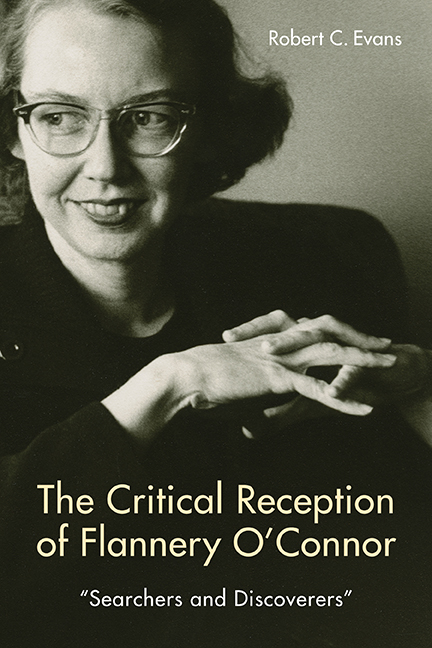Book contents
- Frontmatter
- Dedication
- Epigraph
- Contents
- Acknowledgments
- Introduction
- 1 Aesthetics: Style, Form, Themes, and Characterization
- 2 Religion: Christianity and Catholicism
- 3 History and Historical Contexts
- 4 The South: Heritage and Change
- 5 Race: Blacks and Whites
- 6 Gender: Women and Men
- Conclusion: O'Connor Criticism: What Now? What Next?
- Works Cited
- Index
6 - Gender: Women and Men
Published online by Cambridge University Press: 15 August 2018
- Frontmatter
- Dedication
- Epigraph
- Contents
- Acknowledgments
- Introduction
- 1 Aesthetics: Style, Form, Themes, and Characterization
- 2 Religion: Christianity and Catholicism
- 3 History and Historical Contexts
- 4 The South: Heritage and Change
- 5 Race: Blacks and Whites
- 6 Gender: Women and Men
- Conclusion: O'Connor Criticism: What Now? What Next?
- Works Cited
- Index
Summary
BECAUSE FLANNERY O'CONNOR was a woman writer, one might have expected issues of gender to be prominent in commentary about her from the start. Instead, gender has become a main concern for her critics only since the 1990s. In some ways this is not surprising, because gender became an especially important topic in literary studies in general in the late 1980s and particularly throughout the 1990s. Of course, “feminist” approaches had already begun to arise in the late 1960s and continued throughout the 1970s. Only in the 1990s and 2000s, however, did gender really become a central focus in O'Connor's commentary.
O'Connor herself never wanted to be considered a “woman writer.” Although she often wrote about female characters, she rarely treated them as females per se. Instead, she saw them—and said she saw them— mainly as individuals, with all the flaws, foibles, and, yes, sins of all human beings, whatever their race, social status, ethnic identity, or family background. O'Connor considered people first and foremost as creatures of God who either did their best to honor their creator or failed to do so, whether willfully or through complacent neglect. She was less interested in sexual identities than in spiritual flaws or aspirations. She saw herself less as a woman than as a Christian, a Catholic, a Southerner, and a flawed human being who needed constantly to focus on her relationship with God. Early critics tended to follow her lead. But issues of gender were never exactly neglected. They were always waiting off to the side, eventually inviting fuller study. The shift away from formalism that occurred in the 1970s, and the shift toward social, cultural, and historical approaches that flourished in the late 1980s and early 1990s (and that continues to this day), almost guaranteed that gender would become a central issue in O'Connor criticism.
Of all the issues explored in the present book, gender is the one that receives least attention in the early commentary surveyed in Robert E. Golden's annotated bibliography. Golden does quote from a 1961 interview: “When asked why Georgia's best writers have been women, O'Connor replied, ‘Women just have more time’” (39). This reply was probably partly facetious, but both the reply and the question indicate that the few comments on O'Connor and gender from the 1950s and early 1960s dealt with the fact that O'Connor was a woman writer.
- Type
- Chapter
- Information
- The Critical Reception of Flannery O'Connor, 1952–2017“Searchers and Discoverers”, pp. 212 - 232Publisher: Boydell & BrewerPrint publication year: 2018



